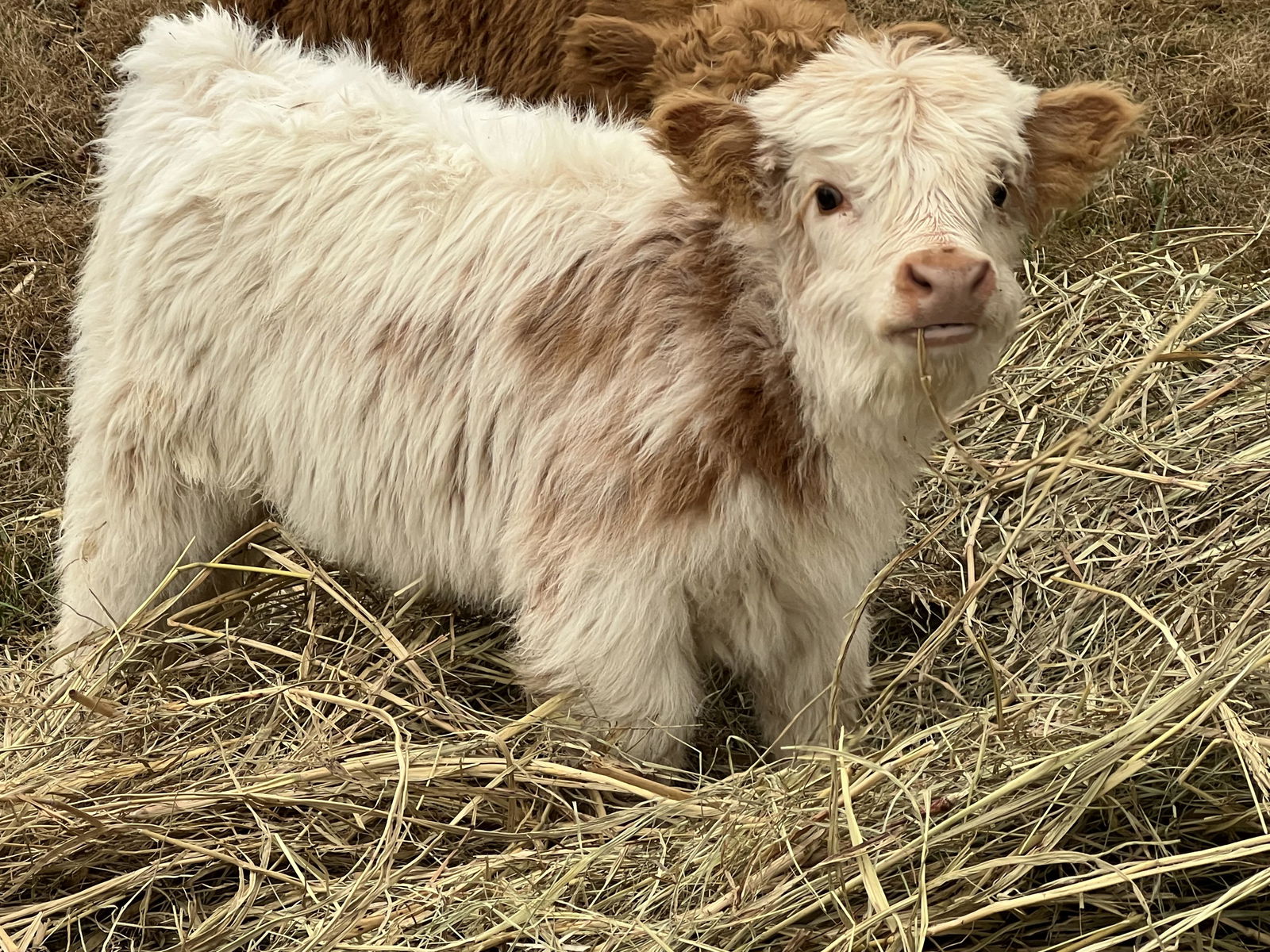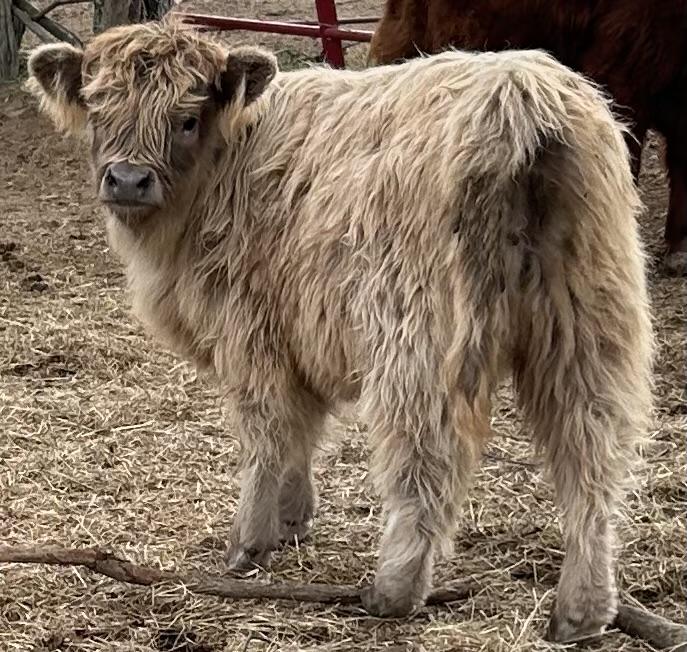
Where To Buy a Ferret? Complete Guide (2025)
Author: Elliott Garber, DVM
You’ve decided you want a ferret.
Those playful, curious bundles of mischief have won you over, and now comes the practical question: where do you actually find one?
The answer isn’t as simple as it might seem. Pet stores? Maybe. Private breeders? Possibly. Online? Sure, but carefully.
Here’s the thing: finding a healthy ferret from a reliable source takes some homework. That’s exactly what Creatures is here for.
Are Ferrets Legal in Your State?
Before you get excited about finding a ferret, you need to know if you can legally own one where you live.
48 out of 50 U.S. states allow ferret ownership.
The two that don’t?
California and Hawaii ban them completely. Washington D.C. legalized ferret ownership in 2018, though some cities (like New York City) have local bans even though the state allows them.
A few states sit in the middle:
- New Jersey and Rhode Island require special permits
- Georgia allows them only if neutered by 7 months and rabies vaccinated
- Illinois requires a breeding license
Check your state AND your city or county. Local ordinances can be stricter than state law.
Contact your state wildlife agency or local animal control if you’re not sure. Better to confirm now than have a beloved pet confiscated later.
Best Places to Buy a Ferret
When you’re ready to find a ferret, you’ve got four real paths:
| Option | Typical Cost | Best For | Watch Out For |
|---|---|---|---|
| Pet stores | $150–$300 | Quick purchase, already fixed/vaccinated | Limited variety, commercial breeding concerns |
| Private breeders | $100–$600+ | Specific colors, known genetics, socialization | Waiting lists, travel/shipping needed |
| Shelters/rescues | $50–$150 | Saving money, adult ferrets, supporting rescue | Fewer babies available, possible unknown history |
| Online marketplaces | Varies | Finding rare ferrets, wider selection | Scam risk, shipping logistics |
Let’s break down each one.
Buying Ferrets from Pet Stores
Walk into most pet stores and you’ll see young ferrets in the small animal section.
What you’ll pay: Typically $150 to $300 for a young ferret.
Rare colors might push toward $350 or more.
What you get: Almost all pet store ferrets come already spayed or neutered, descented, and vaccinated.
That’s the trade-off for the higher price. You’re paying for convenience and medical prep.
The Marshall Farms Reality
Most U.S. pet store ferrets come from Marshall Farms.
These ferrets are typically neutered at 5-6 weeks old (very young) and then shipped to retailers.
They can make fine pets, but some ferret enthusiasts point out potential concerns:
- Higher incidence of adrenal disease (possibly linked to early neutering)
- Less genetic diversity than breeder lines
- Ethical questions about breeding practices and welfare standards
It’s something to know, not necessarily a deal-breaker.
Tips for Pet Store Purchases
If you go this route:
- Visit when ferrets are awake and active (they sleep a lot)
- Check for bright eyes, clean coat, active behavior
- Ask about age (usually 8-12 weeks at sale)
- Get any health guarantee in writing
- Make sure you have proper housing ready (not the tiny starter cages they often sell)
The real advantage: You walk in, meet the ferret, and potentially walk out with it the same day.
No waiting lists, no complex shipping.

Finding Ferret Breeders Near You
Private breeders operate on a much smaller scale than commercial farms.
These are hobby breeders, often members of ferret organizations, who focus on genetics, health, and socialization according to ethical breeding standards.
What you’ll pay: Usually $100 to $300 for standard pet-quality ferrets.
But if you want something special (rare colors, angora coats, show-quality lines), expect $500 to $600 or more.
What You Get That Pet Stores Don’t
Better socialization. Good breeders handle kits extensively from birth.
By the time you bring your ferret home, it’s used to humans, possibly litter-trained, and comfortable with handling.
Known genetics. Breeders can tell you about parents, temperament, and health history.
Many offer health guarantees for congenital issues.
Variety. Want a specific color pattern or an angora ferret? Breeders can help.
The Trade-offs
Many breeder ferrets are not yet neutered or descented when you get them.
Breeders often prefer letting the new owner handle spay/neuter at 6-12 months. That means you’ll pay for the surgery ($150-$300) and deal with a musky smell until then.
Many breeders skip descenting entirely (it’s unnecessary and banned in some countries). Good hygiene makes the smell manageable.
Finding Reputable Breeders
Start with the American Ferret Association (AFA) breeder list.
You can also check Creatures.com’s breeder directory, which lists ferret breeders across multiple states.
Creatures makes it easy to find quality breeders like Middle Earth Ferretry and Woodlands Ferretry.
What to Expect
Waiting lists are common. Ferrets breed seasonally (spring and sometimes fall), so you might reserve a kit and place a deposit.
Transportation. If the breeder isn’t local, you’ll drive or arrange shipping.
Airline pet transport adds about $100-$200 to your cost.
Good breeders ask questions about your setup and experience. That’s a positive sign.

Adopting Ferrets from Shelters and Rescues
Ferret rescues exist throughout the U.S., and they’re often the best-kept secret in ferret ownership.
What you’ll pay: Adoption fees typically run $50 to $150.
What you get: Almost always a ferret that’s already spayed/neutered and vaccinated.
You save on both purchase price and medical procedures.
Why Adult Ferrets Are Underrated
Most rescue ferrets are adults (1-3 years old) rather than kits.
Life changes happen. Owners move, circumstances shift, and ferrets end up needing new homes.
But adult ferrets come with advantages:
- Already litter-trained
- Past the nippy baby phase
- Calmer, more settled temperament
- Known personality (shelters can tell you if a ferret is energetic, cuddly, etc.)
The average ferret lives 6-8 years, sometimes up to 10.
A 3-year-old ferret still has plenty of playful years ahead.
Finding Ferret Rescues
The Ferret Shelters Directory (maintained by Ferret Association of Connecticut) lists rescues nationwide.
Petfinder.com lets you search for adoptable ferrets by location.
Most metro areas have at least one ferret rescue within driving distance.
The Adoption Process
Expect an application and possibly a brief interview or home check.
Rescues want to make sure their ferrets go to safe, prepared homes. They’re not trying to make it difficult, just responsible.
Many rescues encourage adopting bonded pairs (ferrets are social and do well in groups). They often offer deals for pairs.
What about “free ferrets”?
You’ll sometimes see “free to good home” ads online. Approach carefully.
That “free” ferret might need immediate expensive medical care. Always budget for a health checkup even when adoption fees are low or waived.

Buying Ferrets Online Safely
The internet can connect you with breeders and ferrets you’d never find locally.
But it also comes with risk.
The Mixed Bag
General classifieds (Craigslist, Hoobly): People rehoming ferrets. Some legitimate, some questionable.
Never send money before meeting in person. Meet somewhere safe. Look for healthy signs (clear eyes, clean coat, active behavior).
Social media: Facebook and Instagram officially ban animal sales, but people work around it through private groups.
If someone slides into your DMs offering to ship a ferret for a PayPal deposit, that’s a red flag.
Random “exotic animal” websites: Many are scams. Glossy photos, urgent sales, Western Union deposits.
If it looks too good to be true, it probably is.
The Safer Online Option
Platforms like Creatures.com provide structured marketplaces specifically for buying and selling animals.
The advantages:
- Breeders and rescues can list ferrets transparently
- Escrow payment services protect buyers (payment held until you confirm healthy arrival)
- Enforced rules on health disclosure and legal compliance
- Seller ratings and accountability
Instead of sending money to a stranger on Craigslist, you’re using a platform with protections built in.
Online Shopping Tips
No matter which route:
- Ask for live video calls to see the ferret
- Check seller reviews or references
- Never pay via untraceable methods (Western Union, gift cards)
- Budget for shipping costs if needed ($100-$200 typically)
- Understand return/refund policies
Legitimate sellers won’t rush you or refuse video verification.

How Much Does a Ferret Really Cost?
You’ve seen the purchase prices. Now here’s what else to expect.
Initial setup costs: Most new ferret owners spend $300 to $800 on supplies and initial medical care.
That includes:
- Proper cage (multi-level, secure latches)
- Bedding and hammocks
- Food and water bowls/bottles
- Litter box and litter
- Toys and enrichment
- First health checkup
- Vaccines if needed
Typical ferret purchase price: $100-$300 for most people.
Don’t blow your budget on getting the ferret only to realize you can’t afford proper care.
If money is tight, adoption makes the most sense. Lower fee, ferret already fixed and vaccinated, hundreds saved.
Wondering about costs for other small pets? Check out guides for chinchillas, guinea pigs, rabbits, or even miniature donkeys if you’re considering other animal companions.
How to Choose a Healthy Ferret
No matter which option you choose, keep these tips in mind:
① Check the Seller
- Ask for references or organizational affiliations (AFA membership, etc.)
- For breeders, ask if they provide health references
- For rescues, observe facility cleanliness and staff knowledge
- For online sellers, insist on video calls and check reviews
② Inspect Health Carefully
A healthy ferret should have:
- Bright, clear eyes
- Clean coat (slight musky smell is normal, but not foul)
- Active, curious behavior when awake
- Clean rear end (diarrhea signals problems)
- Quiet breathing (no wheezing)
If something seems off, ask about it. Good sellers welcome questions.
③ Know the Medical History
Ask about:
- Spay/neuter status
- Vaccinations (rabies and distemper)
- Any health issues or treatments
Pet store and shelter ferrets usually come with medical records. Breeders should provide health guarantees.
④ Prepare Your Home First
Have the habitat ready before bringing a ferret home:
- Spacious cage (not a tiny starter kit)
- Ferret-proof play area
- Proper food (preferably what the ferret is used to)
- Litter box and supplies
Ferrets are escape artists. Secure your space before they arrive.
⑤ Budget for the Unexpected
Medical emergencies happen. Consider:
- Emergency fund for medical care
- Pet insurance options
- Finding an exotic animal specialist in your area
⑥ Legal Follow-Up
If your state requires permits (New Jersey, Rhode Island), get them immediately.
Schedule a health checkup with an exotic animal specialist within the first week, even if the ferret seems healthy. Not all veterinarians treat ferrets, so find a specialist beforehand.

Final Thoughts
Getting a ferret means choosing a path that fits your situation.
Pet stores offer convenience and ferrets that are medically ready to go home. You trade variety and ethics for ease.
Breeders provide quality, socialization, and genetics you can trace. You trade time and possibly travel for a well-bred ferret. The Creatures.com breeder directory makes finding quality breeders easier.
Rescues offer the chance to save a life while saving money. You trade baby kits for adult ferrets with known personalities.
Online platforms like Creatures.com expand your options with protections that random classifieds don’t provide. With features like escrow payments and seller accountability, the platform provides peace of mind for ferret purchases.
The best place to buy a ferret is from a source that cares about the animal as much as you do.
Whether that’s a small-town rescue volunteer, a conscientious breeder, or a platform that vets its sellers, prioritize the ferret’s well-being.
Do that, and you’ll be ready to enjoy years of playful chaos with your new fuzzy friend.

 All Species & Breeds
All Species & Breeds
 Highland Cattle
Highland Cattle
 Miniature Donkeys
Miniature Donkeys
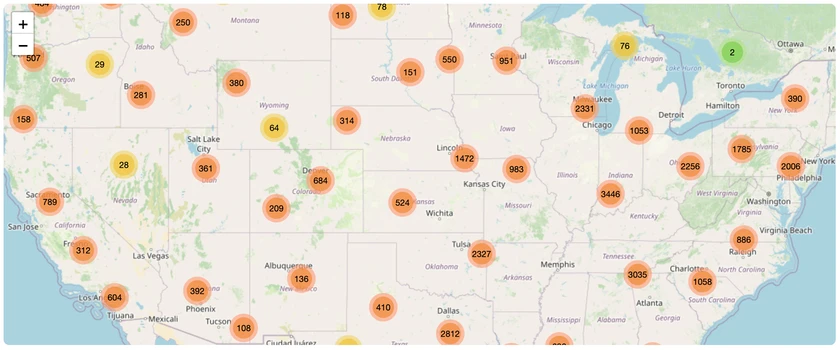 All Species Directory
All Species Directory
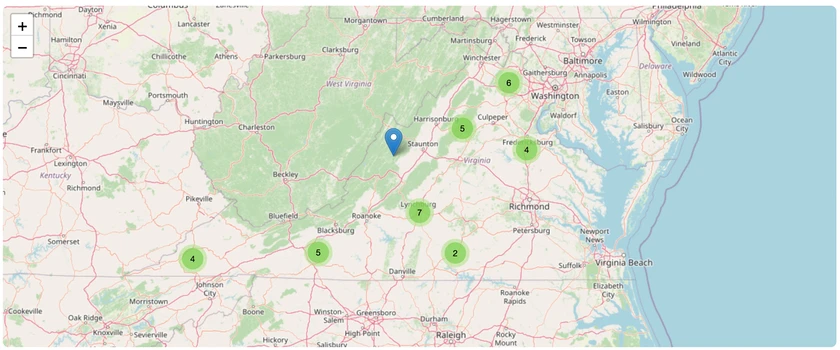 Highland Cattle in Virginia
Highland Cattle in Virginia
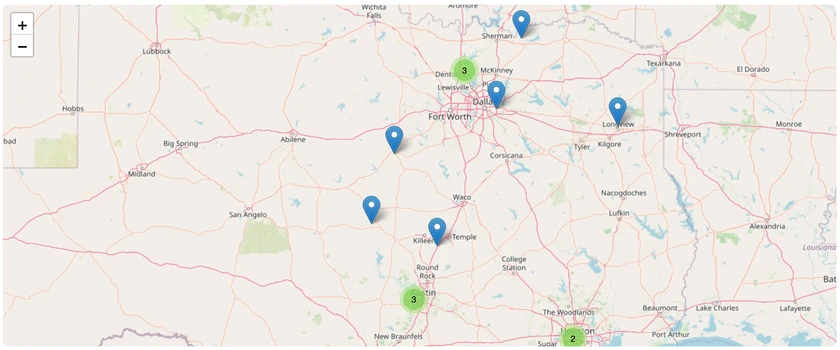 Miniature Donkeys in Texas
Miniature Donkeys in Texas
